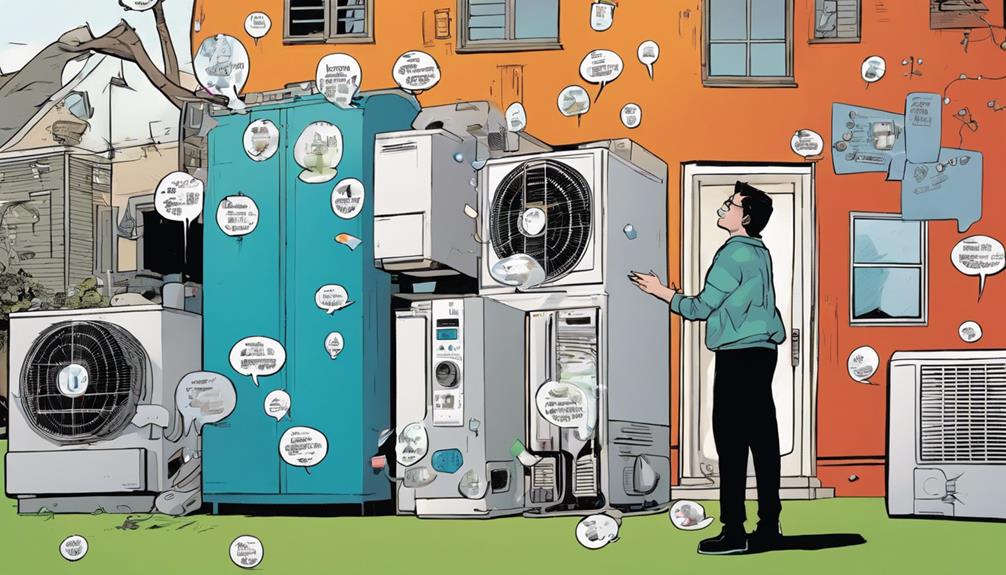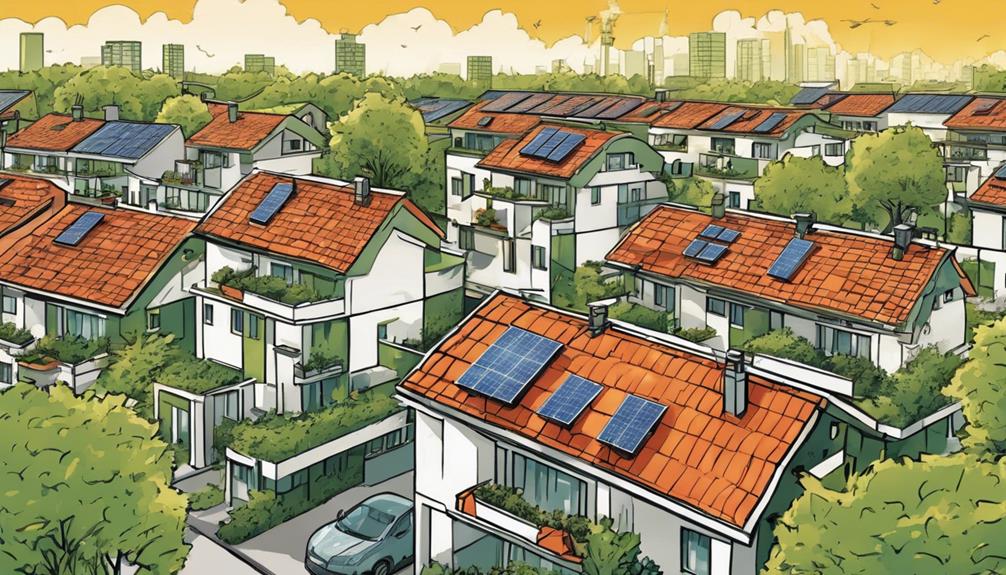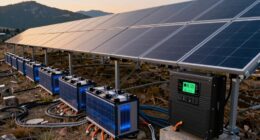When purchasing a central air conditioning system, you're making a significant investment. You'll want to ponder the system's components, including the outdoor condenser unit, indoor evaporator coil, air ducts, and thermostat. Next, look at the system's energy efficiency, measured by its SEER rating, which impacts your operating costs. You'll also need to choose the right unit size for your home, taking into consideration factors like square footage and insulation. Proper duct design and maintenance are essential, as is selecting a qualified contractor for installation. By weighing these factors, you'll be well on your way to finding the perfect system for your needs – and there's more to explore. When considering the purchase of a central air conditioning system, it is also important to think about additional features such as programmable thermostats, air purifiers, and humidity control. Furthermore, ensuring that the system includes gas leak detection capabilities can provide added peace of mind and safety for your home. Taking the time to research and evaluate all of these factors will ultimately lead to a more informed decision and a more comfortable living environment.
Key Takeaways
- Consider the SEER rating to ensure energy efficiency and lower operating costs, with a minimum of 14 for new units in the U.S.
- Choose the correct unit size based on home square footage, insulation, climate, windows, and doors to avoid inadequate cooling or energy waste.
- Proper duct design and maintenance are crucial for even air distribution, consistent temperatures, and reduced costs.
- Ensure a qualified contractor with licenses, insurance, and certifications installs the system correctly, accurately calculating cooling capacity.
- Regular maintenance is essential for optimal performance, energy efficiency, and extending the system's lifespan of 10-15 years.
Understanding Central Air Conditioning
When it comes to staying cool during the hot summer months, central air conditioning is a popular choice for many homeowners, and understanding how it operates is key to making an informed decision.
As you contemplate central air conditioning purchase, knowing that these systems utilize ducts to disperse cooled air throughout your home is vital, ensuring consistent cooling in every room.
Your new air conditioning system will include an outdoor condenser unit, an indoor evaporator coil, air ducts, and a thermostat to regulate the temperature. This central cooling system is more energy-efficient and quieter than window units, providing superior overall comfort and convenience.
As part of your residential air conditioning setup, you'll value the advantages of a well-maintained HVAC system. Proper installation and maintenance are essential for top performance and longevity, which can span 10-15 years.
Considering Energy Efficiency Ratings

What's the most important factor when evaluating the energy efficiency of a central air conditioning system? It's the SEER (Seasonal Energy Efficiency Ratio) rating, which measures how effectively a central air conditioner cools your home.
When purchasing a central air conditioner, look for a higher SEER rating, as it indicates greater energy efficiency. Here are some key things to keep in mind:
- A higher SEER rating can result in lower operating costs over time, although it may entail higher upfront costs.
- New central AC units in the U.S. are required to have a minimum SEER rating of 14 for optimal energy savings.
- Energy-efficient central air conditioners help decrease electricity consumption and reduce utility bills, leading to long-term savings on energy expenses.
Taking the SEER rating into account when buying a central AC system can make a significant difference in your energy consumption and costs.
Choosing the Right Unit Size
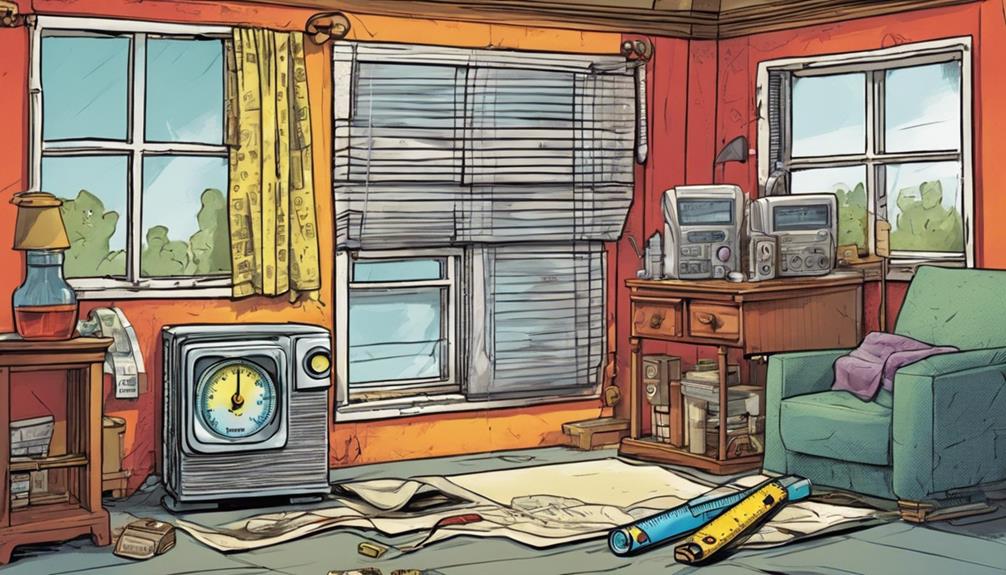
Determining the appropriate unit size for your central air conditioning system is a crucial step in securing both comfort and efficiency, as it directly impacts your energy bills and the overall performance of the system. When selecting the proper size air conditioner, you need to take into account several factors, including your home's square footage, insulation, climate, and the number of windows and doors.
If you choose a unit that's too small, it won't cool your home adequately, while an oversized unit will waste energy and increase your bills. To get it right, it's best to consult with an HVAC professional who can perform a Manual J calculation to ascertain the ideal unit size for your space. This calculation considers various factors to determine the correct cooling capacity needed for your home.
Duct Design and Maintenance Essentials
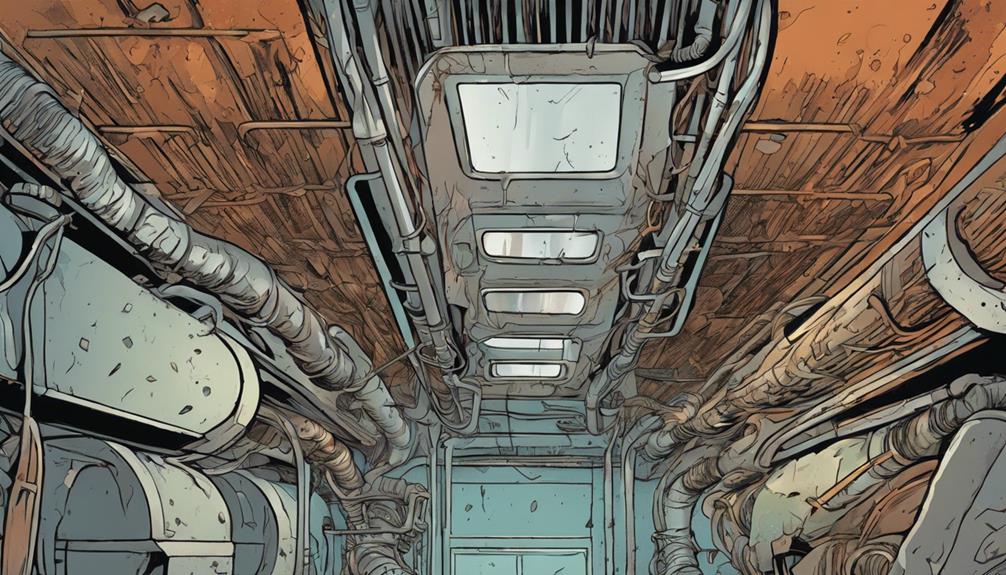
You've selected the perfect unit size, but that's only half the battle – a well-designed and well-maintained duct system is equally important to guarantee your central air conditioning system operates efficiently and effectively.
A poorly designed duct system can lead to energy waste, reduced airflow efficiency, and uneven distribution of cooled air in your home. To avoid these issues, consider the following essentials:
- Proper Duct Design: Confirm your duct system is properly sized and designed to accommodate your unit size, with adequate supply registers for even distribution of cooled air in every room.
- Insulating Ducts: Insulate your ducts to maintain consistent temperatures throughout your home and reduce energy costs.
- Regular Duct Maintenance: Regularly clean and seal leaks in your ducts to improve overall system efficiency, air quality, and prevent energy waste.
Selecting a Qualified Contractor
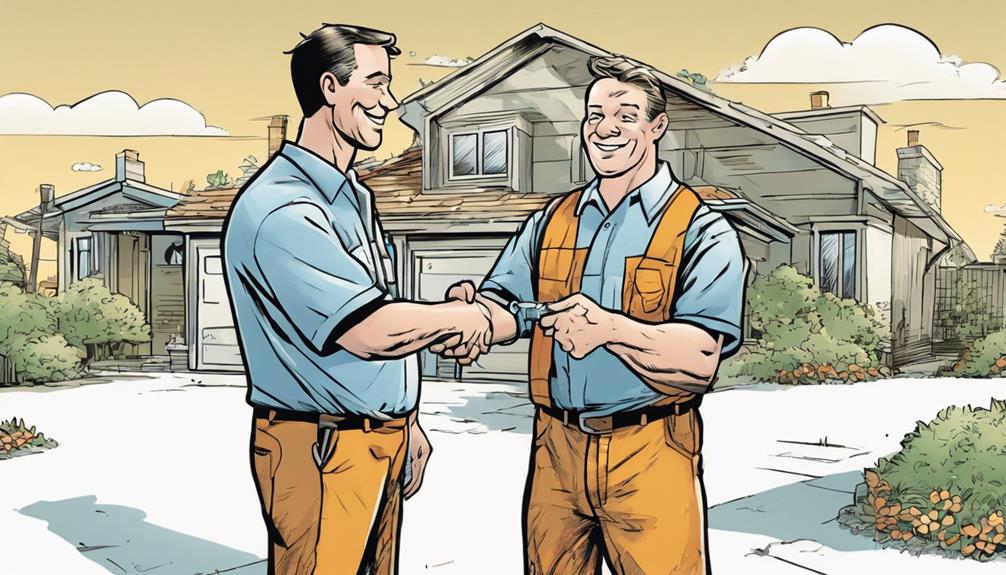
When it comes to installing your central air conditioning system, finding a qualified contractor is crucial to guarantee a successful and efficient project, so take the time to research and vet potential contractors carefully. You want to make sure that your contractor has the necessary expertise and credentials to get the job done right.
Look for contractors with proper bonding, licenses, and insurance to secure quality service. Additionally, verify that the technicians have certifications from trade organizations, demonstrating their expertise in central air conditioning installations.
When selecting a qualified contractor, ask them to calculate the cooling capacity accurately using industry-recognized methods. Request a detailed printout of their calculations and assumptions, including ductwork design, to confirm they've considered all aspects of the installation.
Don't hesitate to ask for referrals from trusted sources like neighbors, family, or business associates who've had similar work done. By doing your due diligence, you'll be more likely to find a contractor who can provide a hassle-free installation and guarantee your central air conditioning system runs smoothly for years to come.
Weighing Costs and Efficiency

Now that you've found a qualified contractor, it's time to weigh the costs and efficiency of your central air conditioning system.
You'll need to balance the features you want with your budget, considering both the upfront cost and long-term energy savings.
As you evaluate different models, look for the SEER rating, which will give you a sense of how energy-efficient each system is.
Balancing Features and Budget
Considering your budget limitations, striking a balance between the initial cost of a central air conditioning system and its long-term energy efficiency is vital. You'll want to weigh the upfront cost against the potential long-term savings on your utility bills.
Here are some key factors to ponder when balancing features and budget:
- Look for units with high SEER ratings, which may have a higher initial cost but can lead to significant long-term savings through improved energy efficiency.
- Evaluate the importance of features like programmable thermostats or smart technology, which can enhance your comfort level and energy efficiency.
- Don't forget to take into account noise levels, as a quieter unit can greatly impact your indoor environment.
Energy Savings and Ratings
As you weigh the costs and benefits of different central air conditioning systems, you'll want to pay close attention to the energy savings and ratings that can greatly impact your utility bills.
A higher SEER (Seasonal Energy Efficiency Ratio) rating is a key indicator of a system's energy efficiency and potential cost savings. Energy-efficient central AC units can lead to significant long-term savings on utility bills, as cooling costs typically make up a substantial portion of a household's energy expenses.
When choosing a system, balance upfront costs with long-term energy savings. Higher efficiency models may have a higher initial price, but they'll likely offer lower operating costs in the long run.
Look for Energy Star certified central air conditioning systems, which meet strict energy efficiency guidelines set by the EPA and can help reduce energy consumption and lower utility bills.
Additionally, understand the EER (Energy Efficiency Ratio) of a system, which provides insight into its cooling efficiency. With a higher EER value, you can expect better energy performance and potential savings.
Evaluating Air Conditioner Features

When evaluating air conditioner features, you'll want to assess the energy efficiency ratings and cooling capacity options that best suit your needs.
You're looking for a system that will provide consistent comfort while keeping your energy bills in check.
Energy Efficiency Ratings
You'll want to pay close attention to the energy efficiency ratings of different central air conditioning systems, since they can greatly impact your wallet and the environment. A high SEER (Seasonal Energy Efficiency Ratio) rating is essential, as it directly affects your operating costs and energy savings.
Here are some key things to keep in mind:
- Look for a high SEER rating: Newer units in the U.S. require a minimum SEER of 14 for energy savings.
- Energy-efficient models save you money: They cost less to run while keeping you comfortable, potentially leading to long-term savings on your energy bills.
- Higher upfront cost, lower long-term costs: Choosing a unit with a higher SEER rating may have a higher upfront cost, but it can provide significant energy savings over the lifespan of the system.
Understanding SEER ratings can help you make an informed decision on the energy efficiency of different central air conditioning systems. By prioritizing energy efficiency, you can enjoy lower operating costs, reduce your environmental impact, and stay cool and comfortable in your home.
Cooling Capacity Options
Choosing the appropriate cooling capacity for your central air conditioning system is crucial, as it directly affects your comfort level and energy bills. You'll want to assess cooling capacity options based on the size of your home, with a general rule of thumb being 20 BTUs per square foot for effective cooling.
Don't overlook the SEER rating of the air conditioner, as higher ratings indicate greater energy efficiency. You may also want to look for additional features like variable-speed motors or two-stage compressors, which can enhance comfort and energy savings.
To consider you're getting the right system for your needs, calculate the cooling load based on factors like insulation, ceiling height, and sun exposure. This will help you determine the best cooling capacity for your home.
Maintenance and Installation Tips
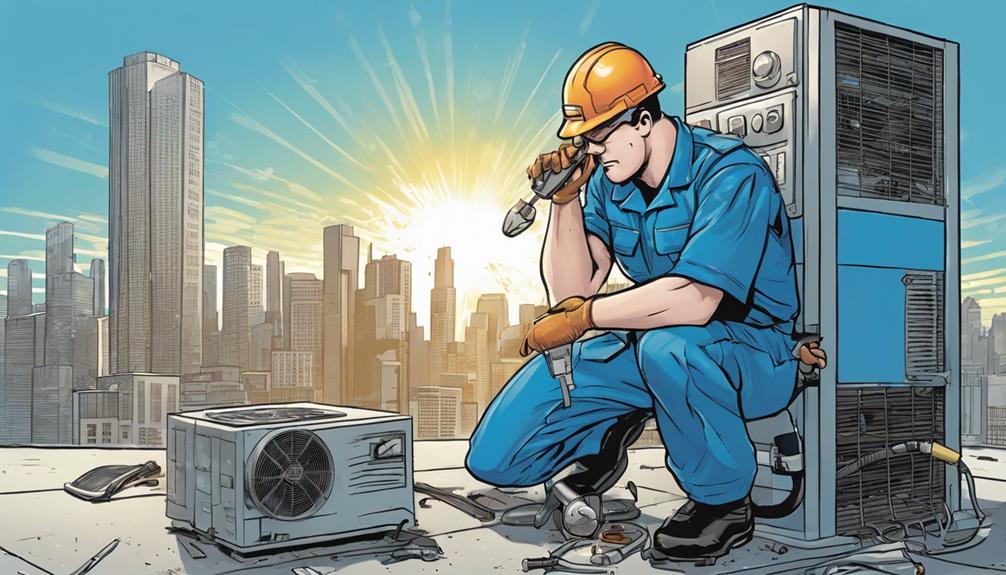
By following a few simple maintenance and installation tips, you can guarantee your central air conditioning system runs efficiently, effectively, and lasts for years to come. Proper installation by a professional is vital to ensure best performance and prevent future issues.
Additionally, regular maintenance, including cleaning coils and checking refrigerant levels, can enhance efficiency and lifespan.
Here are some essential tips to keep in mind:
- Seal ductwork to prevent air leaks, which can greatly improve efficiency and reduce energy costs.
- Invest in a programmable thermostat to control temperature settings and save on energy costs.
- Schedule annual professional maintenance checks to catch potential problems early and keep your system running smoothly.
Frequently Asked Questions
How to Pick a Central Air Unit?
You're trying to pick the perfect central air unit! To begin with, determine your home's cooling needs, then research energy-efficient models with high SEER ratings to save on operating costs.
How Do I Know Which HVAC System to Buy?
You're drowning in a sea of options, but don't worry! In order to find the perfect HVAC system, you'll need to take into account your home's unique needs, like size, insulation, and climate, and then research energy-efficient models that fit your budget.
What to Look for While Buying an Ac?
When buying an AC, you'll want to look for the right size for your space, high SEER ratings for energy efficiency, and features like programmable thermostats and zoning options to enhance comfort and convenience.
What Is the Lifespan of a Central AC Unit?
You're probably wondering how long your central AC unit will last – typically, it's around 10 to 15 years, but proper maintenance and good usage habits can extend its lifespan to 20 years or more.
Conclusion
You've finally made it through the maze of central air conditioning systems! Who would've thought that staying cool could be so complicated? But now that you're armed with all this knowledge, you're ready to take on the heat.
Just remember, a smart shopper is a cool customer. Don't get burned by a bad deal – take your time, do your research, and you'll be chilling in no time.
